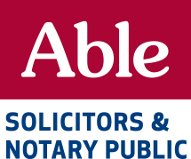Contesting a Will?
Under the Succession Act 1965, a Testator is limited in who he can leave his estate to and in what amount or share.
A SPOUSE:
A spouse of a deceased person has a right to be left at least one-third of their husbands/ wife’s Estate under s111 of the Succession Act 1965 in their will. In most cases a Testator will leave his or her entire estate to their spouse. There may be situations however where a Testator may wish to disinherit their spouse. In such a case where the effected surviving spouse has not renounced their legal right share (for example in/under any family law orders) the entitlement to the legal right share of the surviving spouse vests in them automatically. The surviving spouse does not need to take any legal action to claim the right, same will vest automatically in them unless they disclaim it or have previously renounced it as above.
Even though no election by the surviving spouse is necessary unless they receive or claim the share within 6 years (of date of death of deceased or 6 years from the date the spouse receives notification of their right from the executor of the estate) would become statute barred and prevented from making claim to their legal right share.
A CHILD:
A child of a deceased person can make an application to court under s117 of the Succession Act 1965 for a share in their parent’s estate if their deceased parent has not made any or little provision for them in their will. The test that the court will follow in such an application is whether “the testator has failed in his moral duty to make proper provision for the child in accordance with his means, whether by his will or otherwise”. The time limit for a child to make such an application is limited unfortunately to only 6 months from the date of the raising of representation to the estate of the deceased. Accordingly such actions must be taken immediately by the child/or children who are seeking to claim from the estate of a parent, as otherwise they may find themselves statute barred or prevented from doing so.
As specialist lawyers in Probate Practice Law we are happy to assist or advise you in any aspect of your relatives Estate or Will.
Frequently asked Questions: Executor/Administrator Check List
Basic Information and documents required for Solicitor:
| Checklist | Yes | No |
| A copy of the death certificate of the deceased | ||
| A copy of the funeral account i.e. funeral, burial and undertakers expenses. | ||
| The original Will and any amendments or attachments if any OR | ||
| Where there is no Will, a list of all next of kin of the Deceased:- To include: spouse, children, parents, brothers/sisters, nieces/nephews. Relatives who pre-deceased the deceased must also be disclosed. | ||
| The addresses of all beneficiaries/Next of Kin. | ||
| The occupations and RSI (PPSN) tax numbers of all beneficiaries/next of kin. | ||
| A list of Assets of the Deceased including property, bank accounts, Credit Union accounts, Post Office accounts, shares held, bonds, cars etc. | ||
| Details of debts of the Deceased to include funeral expenses, outstanding loans, credit card bills etc. | ||
| Details of the Deceased’s RSI (PPSN) tax number. | ||
| Details of the Deceased to include: His/Her address and former addresses, occupation, date of birth, marital status. | ||
| If Separated/Divorced, contact details of former spouse. | ||
| Whether they lived in Ireland or abroad. | ||
| Number of children, etc. | ||
| Details of previous bequests/inheritances to the deceased. | ||
| Evidence of property ownership e.g. title deeds to house, mortgage, bank books/lodgement slips etc. |
